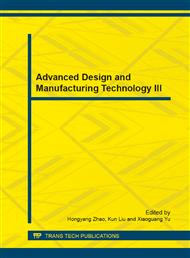p.1351
p.1357
p.1362
p.1366
p.1373
p.1378
p.1383
p.1387
p.1393
Model Free Control of the Refrigeration System Based on Minimum Stable Superheat
Abstract:
This paper applied model free control method to the refrigeration system evaporator minimum stable superheat control. Compared with conventional PID control, model free control method has fast convergence, anti-interference ability. Meanwhile, model free control can reduce the coupling effect between evaporator superheat and evaporating temperature and be well adapted to the variable load control requirements of the refrigeration system, which has good steady state performance and dynamic performance.
Info:
Periodical:
Pages:
1373-1377
Citation:
Online since:
September 2013
Authors:
Price:
Сopyright:
© 2013 Trans Tech Publications Ltd. All Rights Reserved
Share:
Citation:


